
Why Costa Rica is the Happiest Country in the World
Why Costa Rica is the Happiest Country in the World: The rooster often crows before the break of dawn, a dark hour when many farmers, fishermen and families in Costa Rican rise to seize the day. There’s a rare coolness at this hour, as multiple generations share a labor-of-love breakfast of gallo pinto, eggs, sweet plantains, bread or corn tortillas, fresh fruit and coffee.
In fact, any mealtime is likely family time, including a home-cooked lunch that many Costa Rican children and breadwinners return home to enjoy every day. Coffee signifies community, work offers camaraderie, and a town is just an extended family. Active living is how most waking moments are spent, whether at work, commuting or tending to household chores.
Annual HPI reports provide
a snapshot of how
well nations are doing
as habitats for enjoying
long, happy and sustainable lives.
The light of the sun and nature itself overpower fluorescent bulbs and concrete. Nearly everyone in the country can read, health care is denied to no one, and there is always a celebration of a saint, a town, a food or a victorious event taking place somewhere.
However overgeneralized such timelessly wholesome depictions of lifestyle and culture may seem, Costa Rica stands up to modern scrutiny on multiple “good life” counts. While small in size, it has a happiness stature second to none when certain measurable attributes are compared with other more populous, developed and wealthy countries.
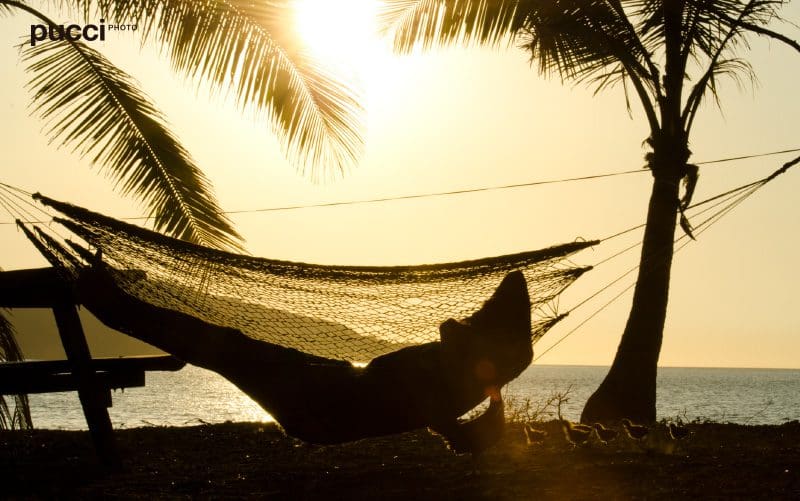
pucci photo
For the third time in less than a decade, Costa Rica holds the prestigious title of “world’s happiest country,” scoring higher than 139 others on the 2016 Happy Planet Index (HPI). As a self-proclaimed measurement of “what matters,” this global index of sustainable well-being was introduced in 2006 by the London-based New Economic Foundation, whose initiatives promote international reforms to social, economic and environmental policy.
Data from United Nations, Gallup World Poll and Global Footprint Network sources are factored into the HPI score, which has four main components: experienced well-being, life expectancy, inequality of outcomes and ecological footprint. Annual HPI reports provide a snapshot of how well nations are doing as habitats for enjoying long, happy and sustainable lives.
In simple terms, this is the equation used to calculate a country’s overall score:
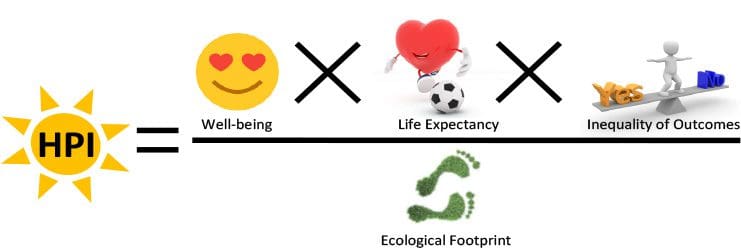
Costa Rica’s winning score in 2016 (the most recent HPI year) was 44.7. This number on its own tells us nothing useful in percentage or “highest possible” terms. It suffices to know that all the other HPI countries had a lower overall score in 2016, even if some rated higher than Costa Rica in specific categories.
For example, current World Health Report data puts Costa Rica in 30th place for its average life expectancy of 79.1 years. Yet this takes nothing away from the Nicoya Peninsula’s boasting rights as one of only five so-called blue zones in the world, where a disproportionately large number of centenarians thrive in health and happiness. (Learn more in the Howler article “Breaking 100,” on page 18, about contributing factors such as diet, sense of purpose and community, strong familial relationships, sun exposure and activity level.)
Costa Rica ranked 10th among the 140 HPI countries for overall well-being. Scores on a 1 to 10 scale indicate how happy people are with their everyday lives in each country being studied. This wellness assessment includes physical well-being as well as emotional and social well-being on a daily basis.

pucci photo
Costa Ricans are renowned for being very family and community oriented. Such inclusive and supportive relationships and involvement in community life are believed to enhance one’s sense of well-being. Another significant factor is that, while Costa Ricans like to complain about their government, there’s a sense that it takes pretty good care of them. Since the army’s abolishment in 1949, public funding that would otherwise be budgeted for military expenditures has instead been allocated to health care, education and pensions.
A new “inequality of outcomes” measurement was applied to the most recent HPI calculations, reflecting the increased significance of social injustices and other inequalities in any given country. This adjustment for the resulting unequal distribution of each population’s life expectancy and experienced well-being data is now factored into the overall HPI score. The outcome of rigorous calculations in Costa Rica’s case was a 15% inequality of outcomes adjustment. Inequality of income has a major impact on experienced wellness ratings.
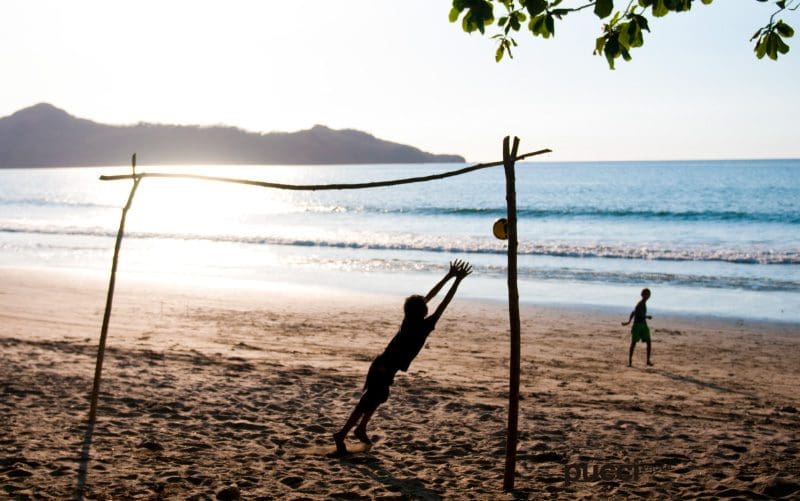
pucci photo
Ecological footprint is the common denominator in the HPI equation for all the countries assessed. This is based on information about energy and natural resources use, transportation methods, types of housing, food production and consumption, and waste management. While Costa Rica is widely recognized as a leader in environmental conservation and renewable energy sources, its mediocre HPI ranking in 75th place in this category shows there is much room for improvement.
As highlighted in the last Howler issue, Costa Rica is taking ambitious steps to reduce its environmental impact, including plans for banning single-use plastic products and meeting the 2021 goal of zero fossil fuel dependency. The recent launch of “ecolones,” a cryptocurrency incentive for recycling, is another eco-conscious initiative. Many who are involved with Costa Rica’s allure of biodiversity and natural wealth are becoming more concerned with conservation versus exploitation.
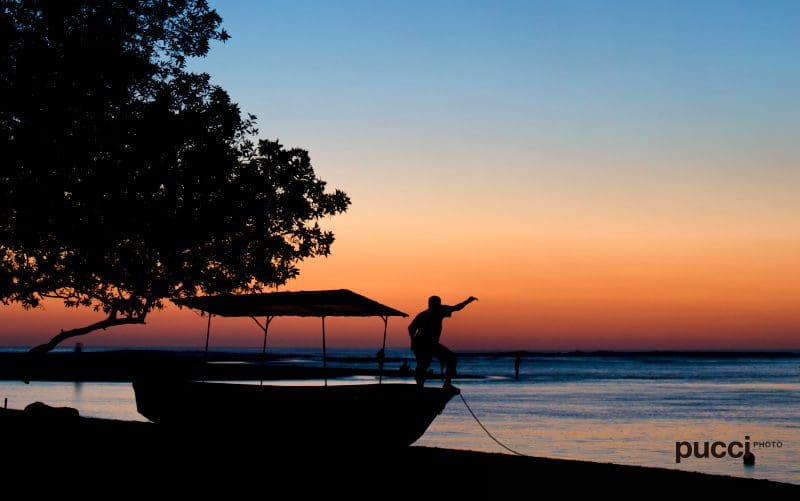
pucci photo
The “money can’t buy happiness” cliché has actually proven to be more scientifically sound than merely a saying. According to the World Bank, average yearly income in Costa Rica is only around $11,040, significantly below $60,200 in the United States. Yet the U.S. ranks 108th in the world with its overall HPI score of only 20.7 — less than half of Costa Rica’s.
Many of the world’s wealthiest countries are similarly less happy than those that fall short financially. According to the HPI, the happiest people on earth, outside of Costa Rica, live in Mexico, Colombia, Vanuatu, Vietnam and Panama.
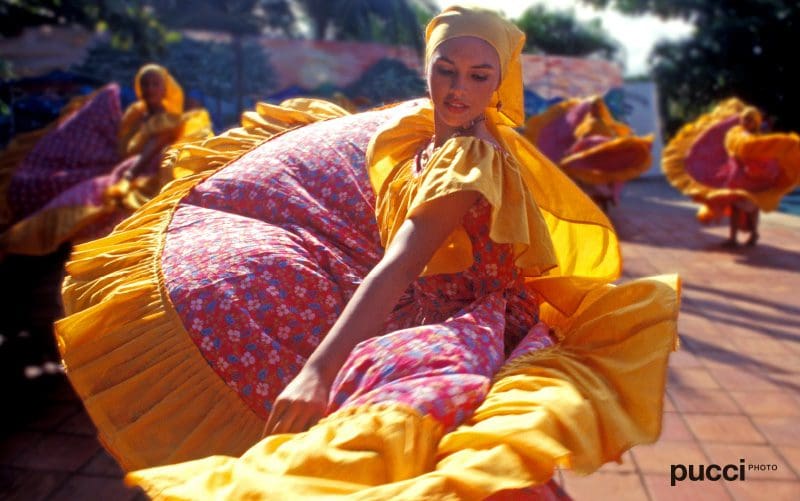
pucci photo
We are beginning to realize that what makes us happy isn’t how much stuff we have or how much money we earn, even though there is a certain amount of money that we all need to lead lives unburdened with constant financial stress.
Happiness and well-being are inextricably linked to our relationships, experiences, freedom to do what we enjoy, our physical health, sense of purpose and the support we receive from our community and government. Well-being is also linked to our diet, level of physical activity, daily hours of sleep and rest and time spent outdoors and in nature.
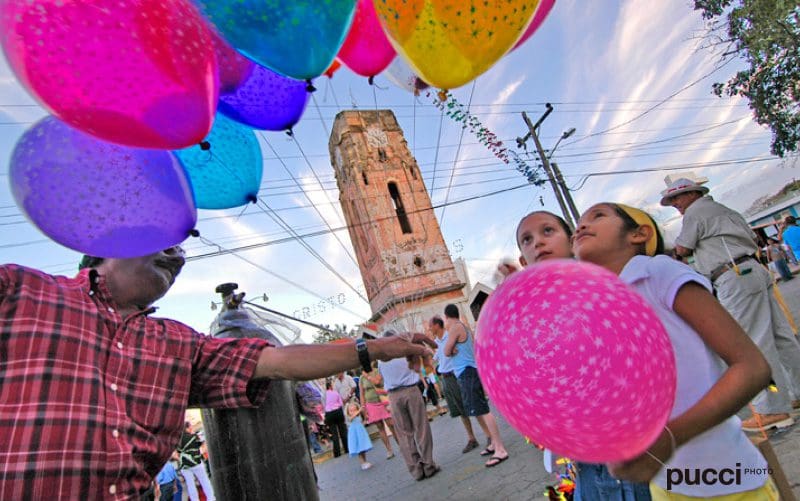
pucci photo
The typical lifestyle in Costa Rica, of both natives and expats, includes many of these elements. The natural, political and social environment of Costa Rica is conducive to living one’s best life, if that means living simply, consciously, purposefully and connected to nature and your neighbors.
When you remove the struggle to obtain basic human necessities and services, the financial drain of an active military, and propaganda that bigger is better, newer is necessary, and what you have is never enough, happiness is a state that really can be achieved.
Read about the Pucci Family
Purchase Pucci books
Costa Rican Army Abolished: One more reason for happiness?
Feature Article – Living longer in Costat Rica Blue Zone
Costa Rica Yoga and Wellness Retreats
Yoga Wisdom – Power of Yoga: Yamas and Niyamas
Yogapedia – Vrksasana: Tree Pose
Natural Medicine – CBD Oil: Nature’s Miracle Cure?
Mindfulness: Natural High: Benefits of Nature
Psychological Well Being – Counseling Help in Costa Rica
Eat Well: Costa Rica Superfoods – Nutrient Dense Food
Costa Rica Medical Tourism
Costa Rica Dental Tourism: Veneers – Reason to Smile
Ecotourism in Costa Rica: Sustainable Tourism
Ecotourism Pioneer: Rafael Gallo – Ríos Tropicales
The Osa Peninsula
Ecotourist Road Trip: Sarapiquí
Ecolodges in Costa Rica
Caminos de Osa: Tourism that is helping Costa Ricans
CST Being Green Matters to Diamante Eco-Adventure Park
Grow Sustainably, Build & Live Sustainably in Costa Rica
Behind the Image: Photography as Ecotourism
Building Green and Prove it in Costa Rica
Costa Rica Sustainable Development: Ever Greener
Costa Rica’s indigenous Communities and Indigenous Tribes

